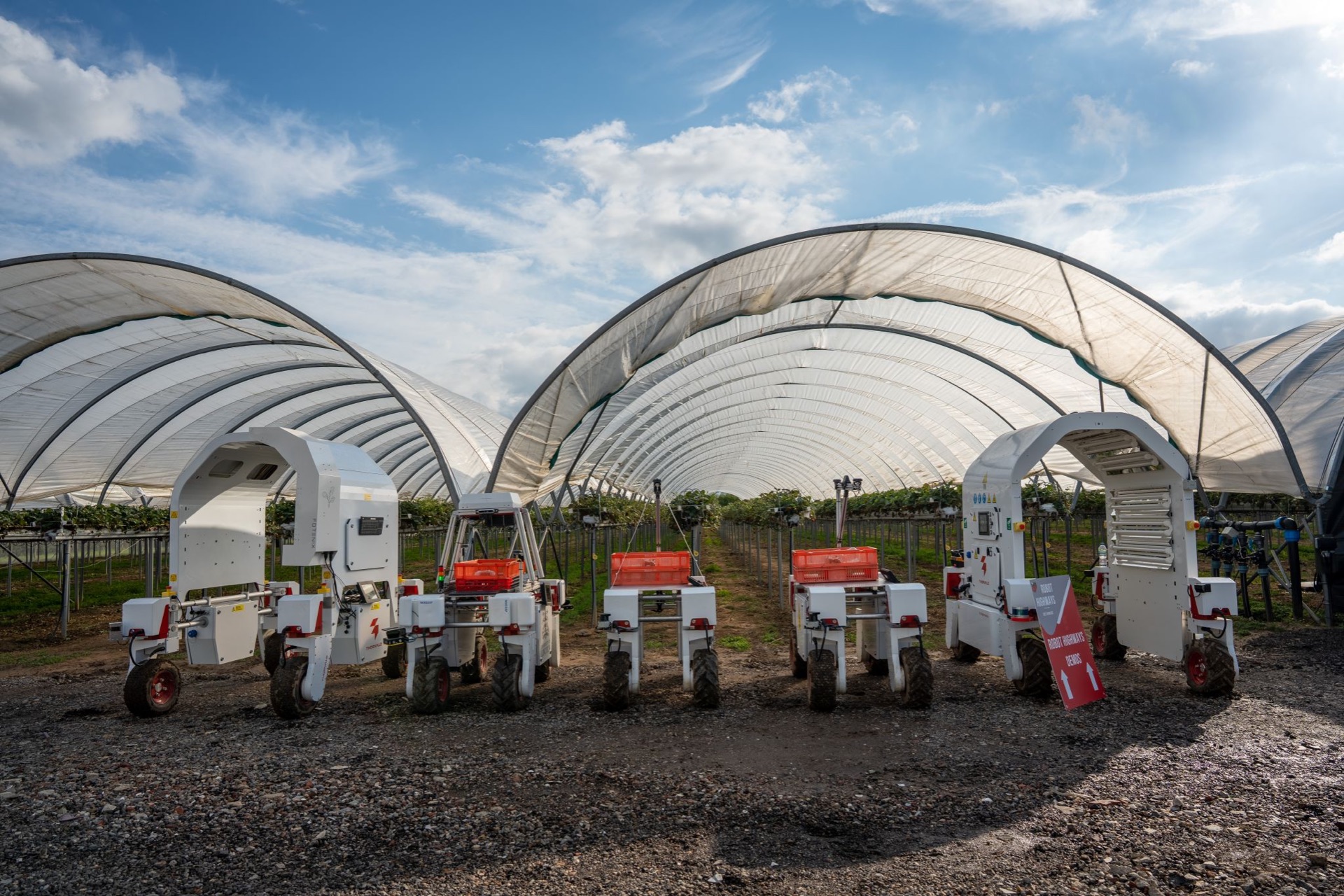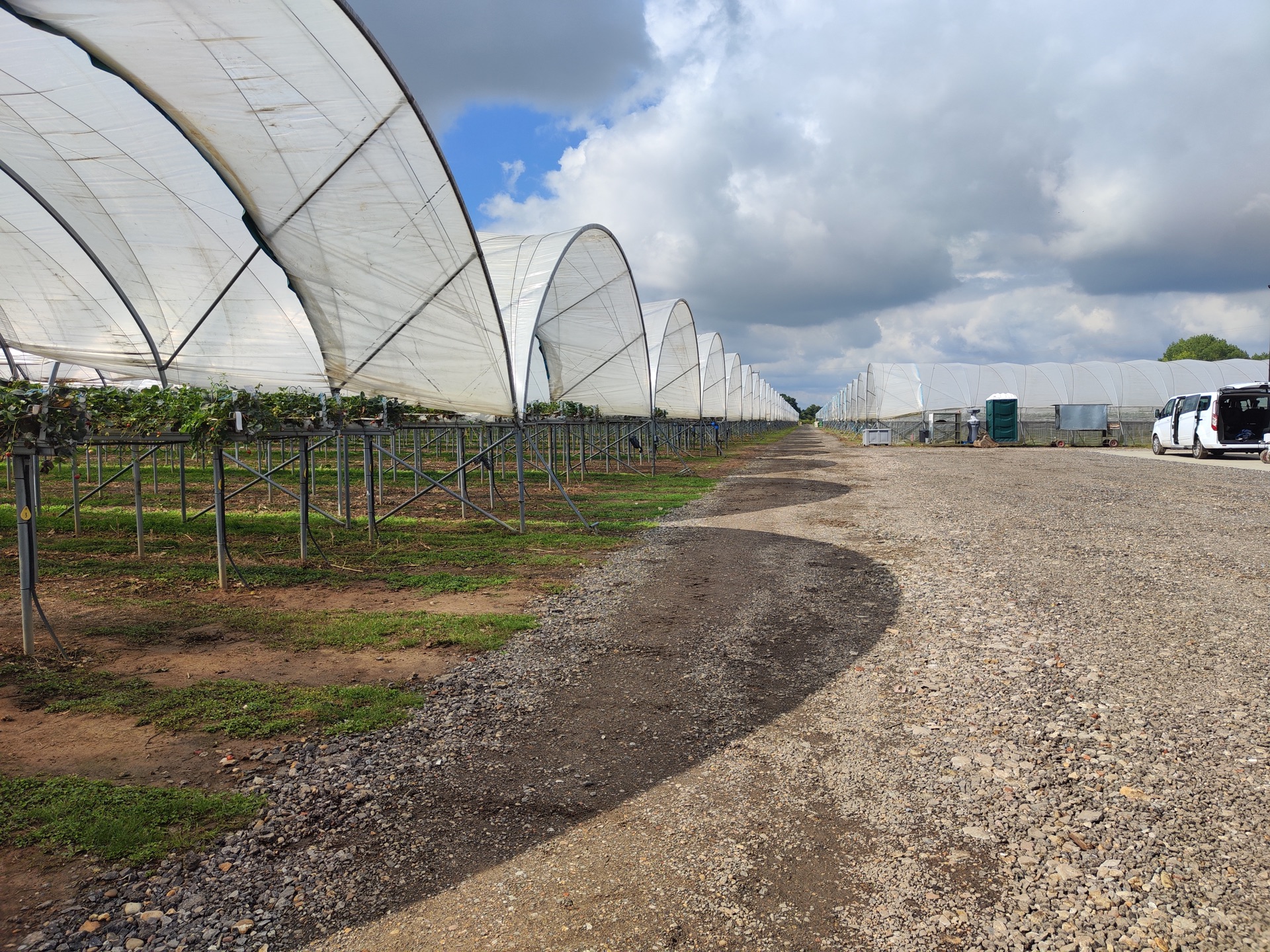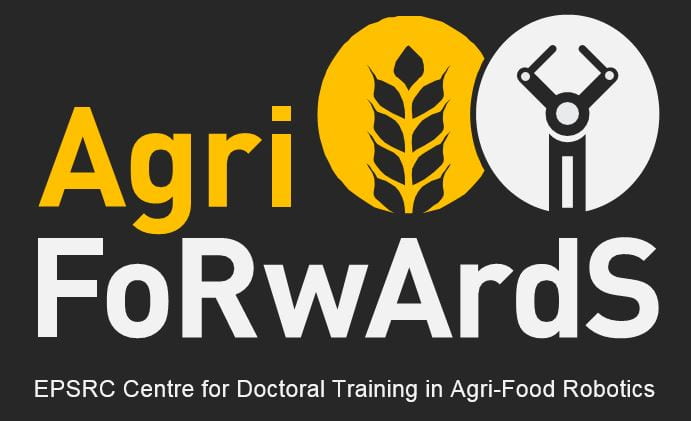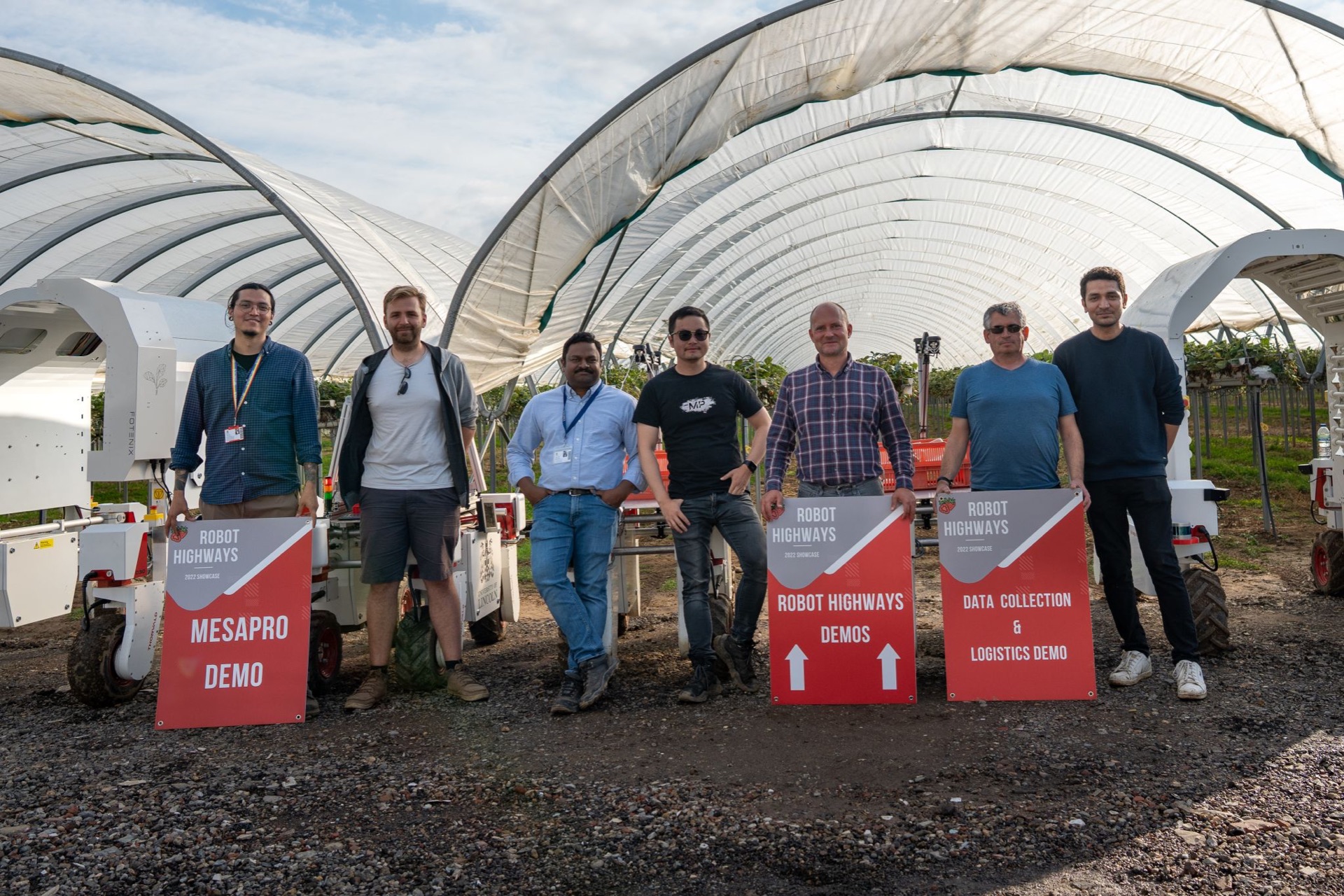Alongside researchers and academics, as well as industry experts, Cohort 4 students Andrew Perrett and James Heselden, had the chance to take part in a cross research group demonstration of the UKRI funded Robot Highways project.
Although the project is not a direct engagement of the CDT, many University of Lincoln researchers and post-doctoral students’ works support this project. To find out a bit more we speak with Andrew and James to find out what their experiences were like and how they become part of the project prior to joining the AgriFoRwArdS CDT.
What is Robot Highways?
The Robot Highways project is a £2.6M UK funded by Innovate UK initiative under their Transforming Food Production framework. The project started in 2020 and takes place over a 5 year period. It is a joint vision for the future of soft fruit farming, funded by Innovate UK.
This exciting project involves several partners, and is led by Saga Robotics, global leaders in robotics and autonomous systems (RAS) technology for the soft fruit sector, alongside the University of Lincoln (Europe’s largest academic research centre for agri-robotics), Berry Gardens (a co-operative of British berry growers and the UK’s largest supplier of the nation’s berries and cherries), University of Reading (knowledge exchange and economic evaluation specialists), British Telecommunications, Manufacturing Technology Centre Ltd, and leading strawberry grower and member of Berry Gardens, Clock House Farm Ltd.
Robot Highways is one of the largest known global demonstrations of robotic and autonomous (RAS) technologies that fuse multiple application technologies across a single farming system. The trial will set to deliver a vision for the future of soft fruit farming, where robots will assist farmers by carrying out essential, energy intensive physical farm processes such as picking and packing fruit and treating crops to reduce critical pests and diseases, powered by renewable energy.

Where was the demonstration?
This demonstration took place towards the end of September at Clock House Farm in Kent. The aim of the demonstration was to show the current capabilities of the applications developed across a range of autonomous tasks, for example, picker support. Clockhouse Farm is huge, being over 330 hectares, and having a picker walk from one location to another can mean they cover many kilometres per day, which can consume as much as 20% of a pickers time transporting picked produce from the field to the warehouse.

Who took part?
In attendance on the day (and prior weeks) were several research groups working with Clockhouse Farm, Saga Robotics and the University of Lincoln. Many long days from 06:00 – 22:00 were spent ensuring that the systems were functioning and reliable. University of Lincoln collaboration ranged from Prof Marc Hanheide, Dr Leonardo Guevara, and Dr Gautham Das, to name a few.
What was it like to take part in the project?
Cohort 4 student Andrew Perrett said that:
“As a student, having the opportunity to work on the Robot Highways project, along side experts in their field, has not only strengthened my appreciation for the subject, but has taken book theory and turned it into a useful practical experience.
You can learn a great deal about robots within a classroom, but seeing theoretical challenges applied to a real dynamic environment, such as a farm, adds valuable depth to my understanding of the subject . This practical experience can now be used to inform my future studies.“
Cohort 4 student James Heselden said that:
“So we were Kent as part of the Robot Highways UKRI project to demonstrate progress over the last two years on our fleet coordination systems. My work on the day was mostly monitoring the activity of the system, making sure things are working as expected (as we have spent the last few months making the system more robust, it was quite relaxing).
The system we were demonstrating is designed to manage robots of different types; tall robots performing fruit-counting/data-collection, and short robots moving trays of fruit around between pickers and storage. The robots navigate the same physical space, but have different constraints which limit where they can go, so coordinating their navigation together is critical. We have developed the system to performing tasks both on-demand (such as fruit pickers requesting collection), and tasks triggered by events (robot detects low battery and goes to charge).
The event itself was being attended by farmers from across the country, so for them, this event was a great opportunity to see what kind of new systems are being developed to tackle the problems they encounter, and be able to engage more directly with researchers and developers. Events like these are pivotal in building more links between industry and academia so this was a great experience to be a part of.”
A huge thank you to Andrew and James for sharing their experiences on the project. It is fantastic to see the new Cohort 4 students already getting involved and supporting real world challenges to help focus their research and practical skills.
Do you want to get involved in the CDT?
If you are interested in learning more about what we do and if you share a passion for agriculture and technology then go to our AgriFoRwArdS CDT website to see more about our research, how you can be involved and how to apply to be a student in the program.

